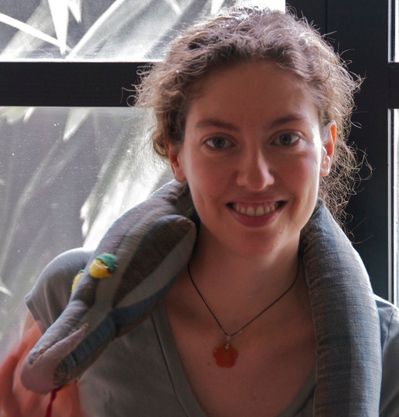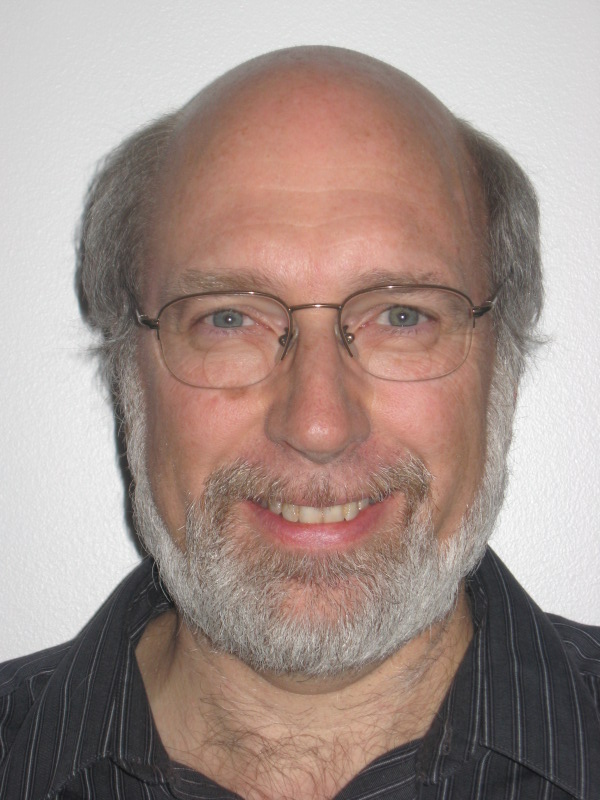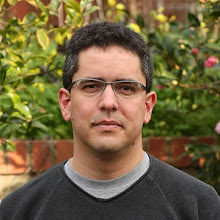Board of Directors
Ralf Gommers

Ralf Gommers received his PhD in physics from University College London and did his post-doctoral work at MIT, working in the field of experimental atomic physics. After a short period working on electronics for Magnetic Resonance Imaging devices at Philips Research, he is now a designer for advanced lithography machines at ASML in the Netherlands. During his post-doctoral work he became involved in the SciPy community. He is an active contributor to NumPy, SciPy and statsmodels, and has also contributed to scikit-image. Ralf has been the NumPy release manager for two years, and is currently the SciPy release manager.
Emmanuelle Gouillart

Emmanuelle Gouillart works as a physics researcher in the joint laboratory between the French National Research Center (CNRS), and the French corporation Saint-Gobain. She holds a physics PhD from the Université Pierre et Marie Curie, and an MSc from the Ecole Normale Supérieure in Paris. Her research interests are in glass melting, tomography imaging, and fluid mixing. Scientific Python is the ubiquitous tool in her daily research.
She became involved in the Scientific Python community with the Numpy/Scipy documentation marathon from 2008 on, and shortly after she started teaching Scientific Python during the Python African Tour event in Dakar in 2009. She has been contributing to the Scipy Lecture Notes used for the Euroscipy tutorial sessions since Euroscipy 2010, where she was tutorial chair, and she has organized several training sessions on Scientific Python since then. She has been part of the organizing board of the Euroscipy conferences in 2010, 2011 and 2012. Her daily use of image processing has led her to become a regular contributor to the Python scikit-image.
Perry Greenfield

Perry Greenfield received a Ph.D. in Physics from M.I.T. His thesis was based on Very Large Array radio observations of the first discovered gravitational lens. After a short stint in communications engineering at Bell Labs, he ended up at the Space Telescope Science Institute, where he has worked for the last 26 years. He initially was responsible for calibrating the Faint Object Camera for the Hubble Space Telescope, but for the last 16 years he has been leading the Science Software Branch. He has pioneered the use of Python in astronomy, and his group has been heavily involved in Python for the last 12 years. They have developed PyRAF, numarray (the precursor to current NumPy capabilities), PyFITS, and been heavily involved in the development and support of matplotlib. His group is now heavily involved in developing the science software to support the next large space telescope under construction, the James Webb Space Telescope.
Jarrod Millman

Jarrod Millman is on the SciPy steering committee and a contributor to both the NumPy and SciPy projects. While director of computing for UC Berkeley’s Neuroscience Institute, he helped found the Neuroimaging in Python (NIPY) project. Currently, he is a software developer at Berkeley’s Brain Imaging Center.
Travis Oliphant

Dr. Oliphant has a Ph.D. in Biomedical Engineering from the Mayo Clinic, and M.S. and B.S. degrees in Electrical Engineering (and Math) from Brigham Young University. Travis has worked extensively with Python for numerical and scientific programming since 1997, and was the primary developer of the NumPy package and the author of the definitive Guide to NumPy. He is also the primary founding author of the SciPy package. During his academic career, he has worked in the fields of satellite remote sensing, Magnetic Resonance Imaging (MRI), Ultrasound, elastography, and general inverse problems.
He was an Assistant Professor of Electrical and Computer Engineering at Brigham Young University from 2001 to 2007 where he taught courses in probability theory, electromagnetics, inverse problems, and signal processing. In addition, he directed the BYU Biomedical Imaging Lab, and performed research on scanning impedance imaging. He has done consulting work since 1997 in laser scattering off of semiconductors, sparse matrix calculations for search engines, and mesh transformations for fluid dynamics.
Dr. Oliphant served as President of Enthought from 2007 until 2011, where he oversaw the establishment of additional satellite offices in New York City, Belgium, Cambridge UK, and Mumbai, India. During this time, he worked with Fortune 50 companies such as Shell, J.P. Morgan, and Proctor and Gamble in all aspects of the contractual relationship – from contracts to training to code architecture and code development. He also served on the Board of Directors for Enthought from 2008 until 2011, and during that time, formed strong connections with J.P. Morgan technical leadership staff and other industry leaders.
Fernando Pérez

Fernando Pérez received his PhD in theoretical physics from the University of Colorado and did his post-doctoral work there in applied mathematics, working on fast algorithms for partial differential equations. He is currently a research scientist at UC Berkeley’s Helen Wills Neuroscience Institute, focusing on the development of new analysis methods for brain imaging problems and high-level scientific computing tools. Towards the end of his graduate studies, he became involved with the development of Python tools for scientific computing. He started the open source IPython project in 2001 when he needed an efficient interactive workflow for everyday scientific tasks. He continues to lead IPython, as part of a growing team of talented developers. He remains committed to the development of open, high-level tools to tackle the current challenges in computationally-based scientific research and education across disciplines. He is a member of the matplotlib development team and has contributed to numpy, scipy, sympy, mayavi, nipy and nitime. He regularly organizes workshops and lectures aimed at teaching the use of these tools to audiences at levels ranging from high-school students to research scientists. He is also a member of the Python Software Foundation. When not glued to a computer, Fernando tries to spend as much time as possible with his wife outdoors hiking and backpacking, as well as climbing. For more information, see http://fperez.org.
Didrik Pinte
Didrik Pinte has had a mixed career between academia and the private sector. As a researcher, he focused his work on large scale water allocation problems during 4 years at UCL, Belgium. After another 5 years running his own consulting company in the field of environmental data management systems, mostly based on Python, he joined Enthought. He is now running the European operations of Enthought out of Cambridge, UK.
Anthony Scopatz (Treasurer)
Anthony Scopatz is a computational scientist and long time Python developer, Anthony holds his BS in Physics from UC Santa Barbara and Ph.D. in Mechanical / Nuclear Engineering from UT Austin. A former Enthought employee, he spent his post-doctoral studies at the FLASH Center at the University of Chicago in the Astrophysics Department. He is currently a Staff Scientist at the University of Wisconsin-Maidson in Engineering Physics. Anthony’s research interests revolve around essential physics modeling of the nuclear fuel cycle, and information theory & entropy. Anthony has published and spoken at numerous conferences on a variety of science & software development topics.
Andy Terrel

Andy Terrel received his PhD in computer science at the University of Chicago in 2010 and is currently a staff researcher at the Texas Advance Computing Center at the Univerisity of Texas at Austin. His major emphasis of research has been on the automation of numerical methods on high performance computing resources. To this end, he has provided numerous contributions to a wide variety of open source projects, including the popular FEniCS project and SymPy.
Dr. Terrel has held roles at universities, government laboratories, and several companies. In all of these roles, Dr. Terrel has been an expert in HPC computing as well as an advocate for the open source software movement. Dr. Terrel has served as chair and organizer of many scientific computing conferences including SciPy Conference, FEniCS Conference, HPC^3, and Scientific Software Days. He is an active contributor and reviewer to several scientific computing journals.

